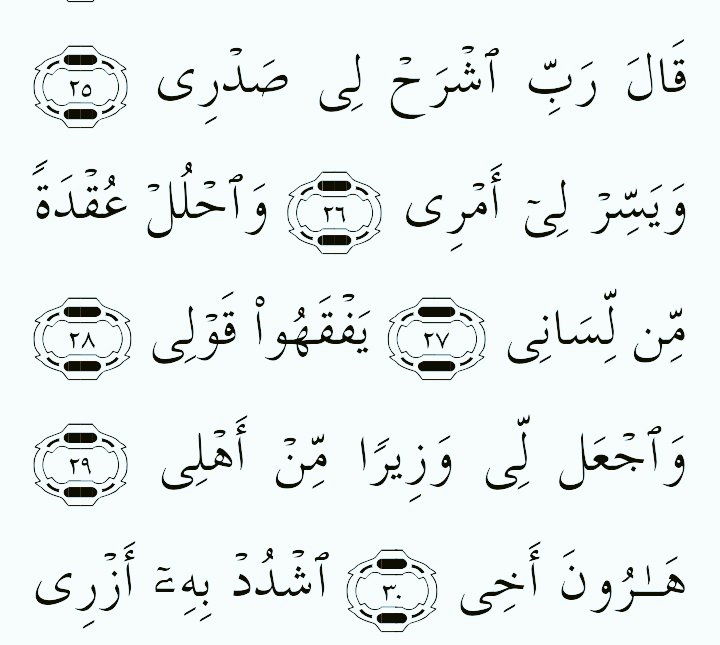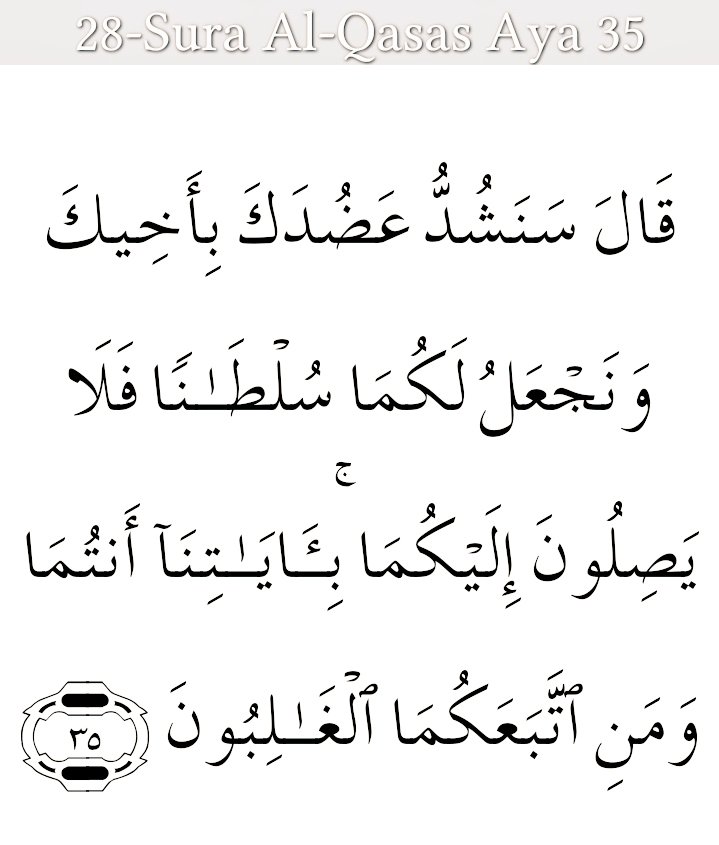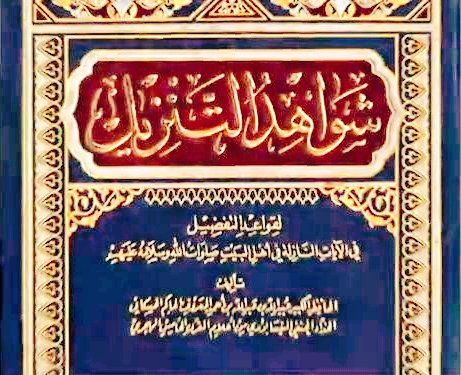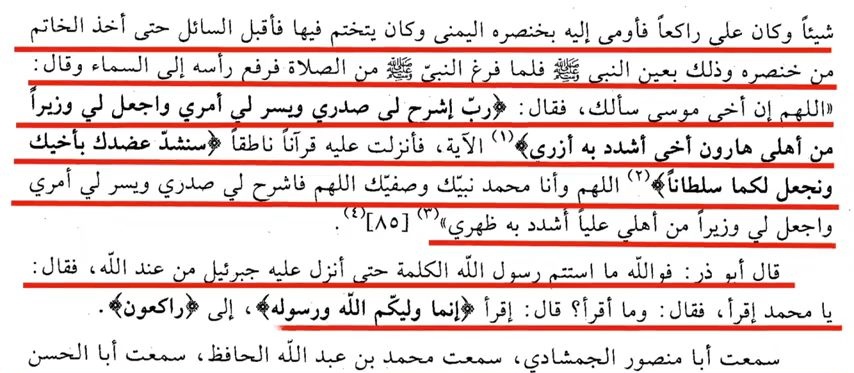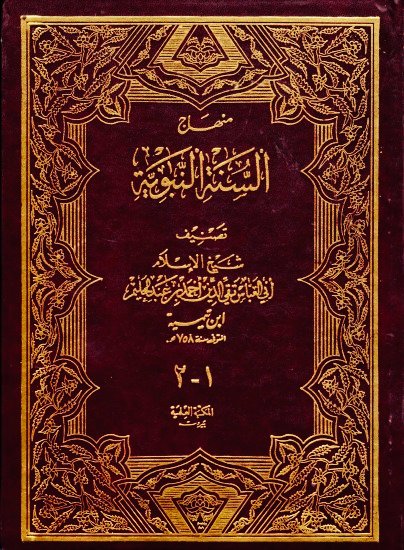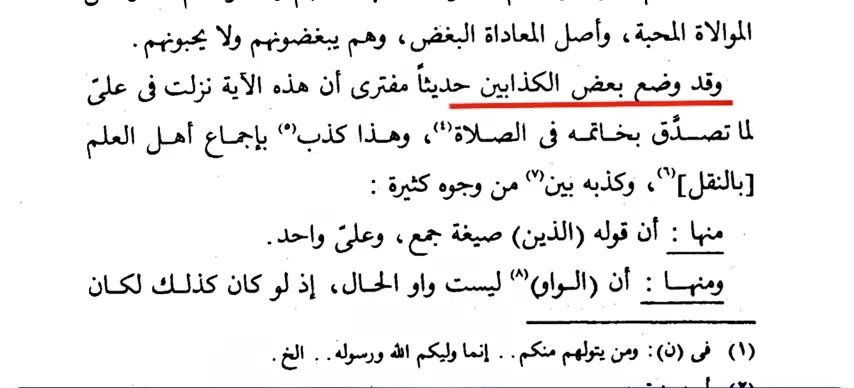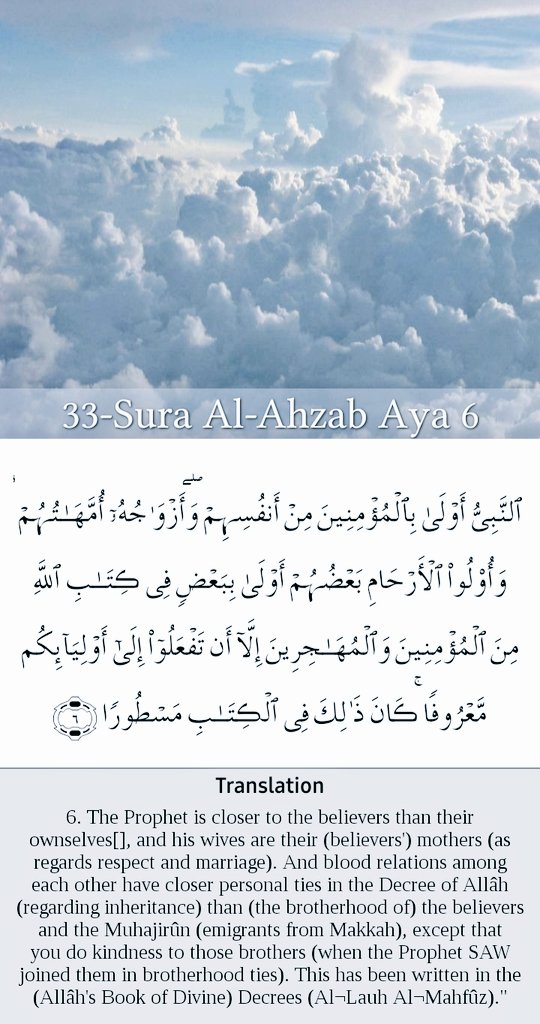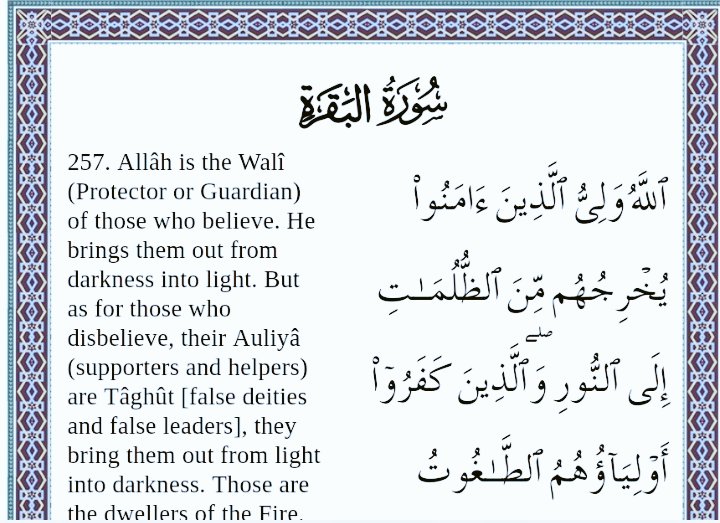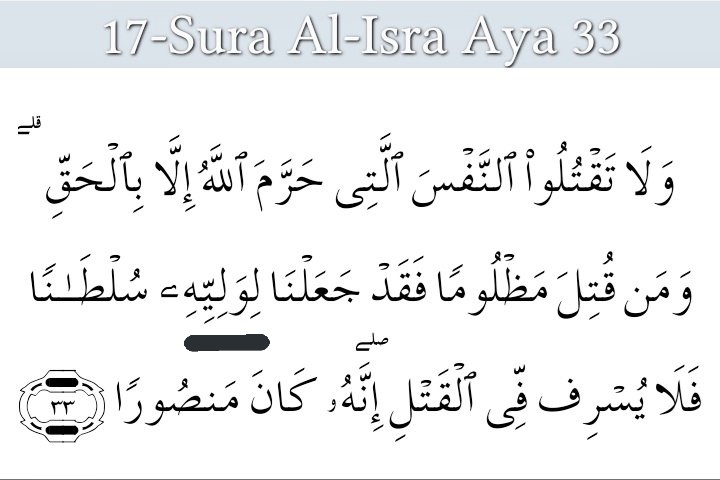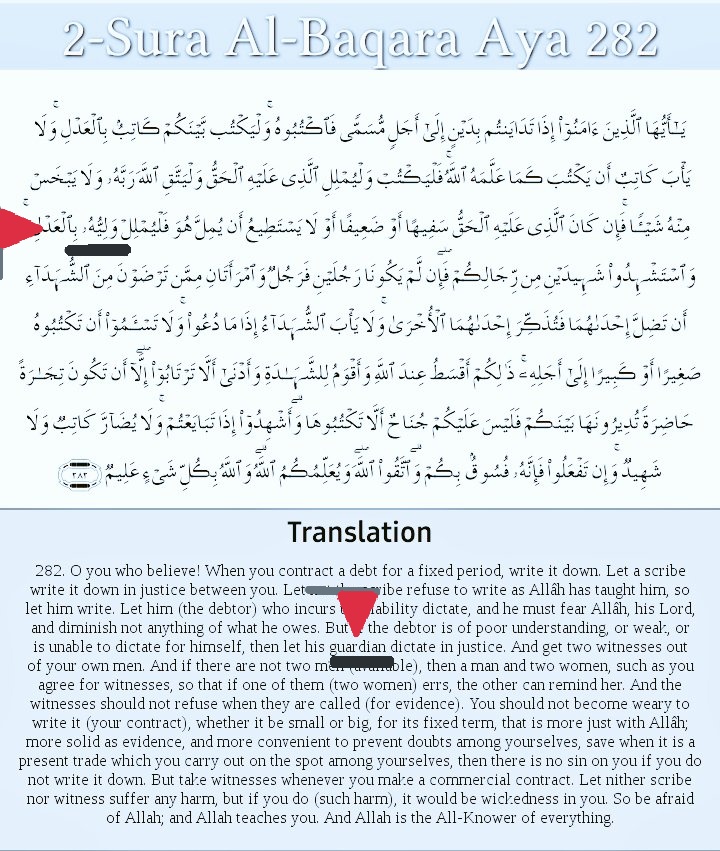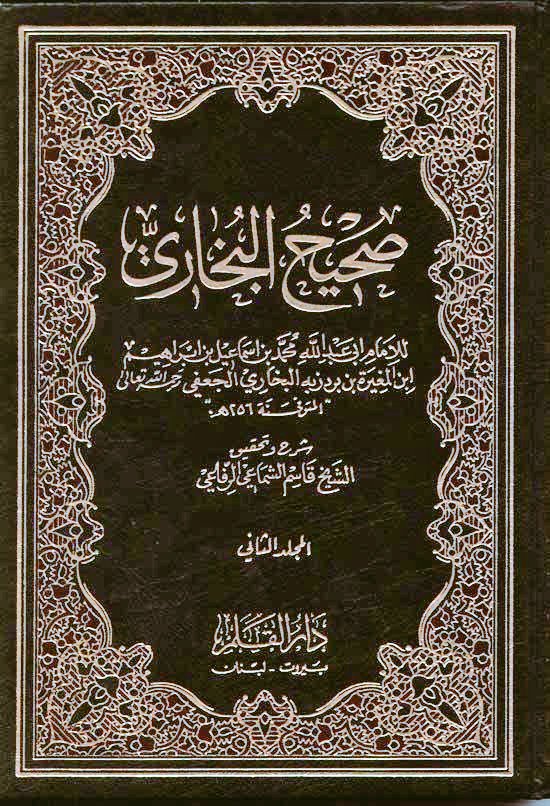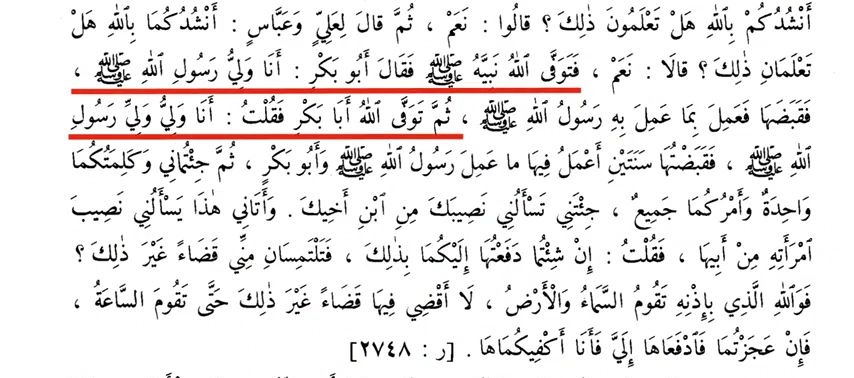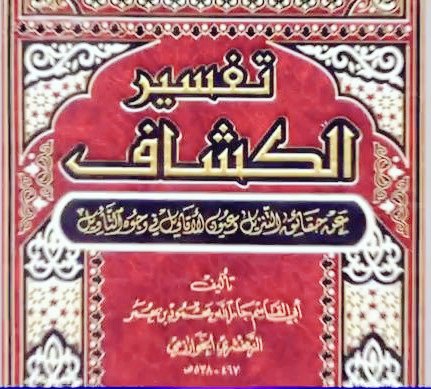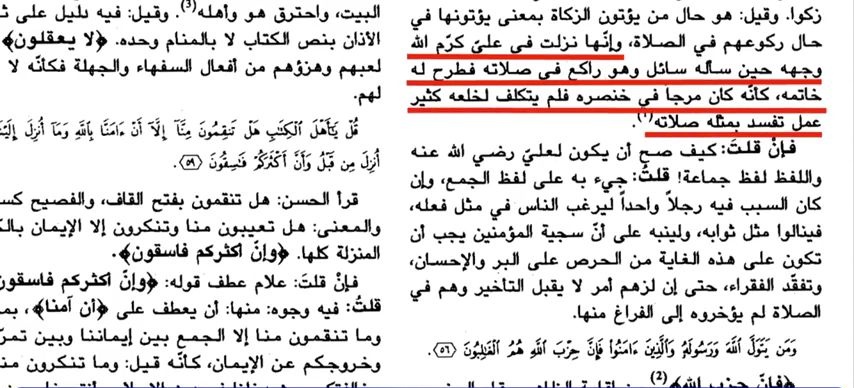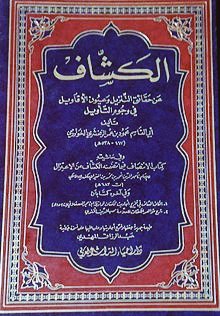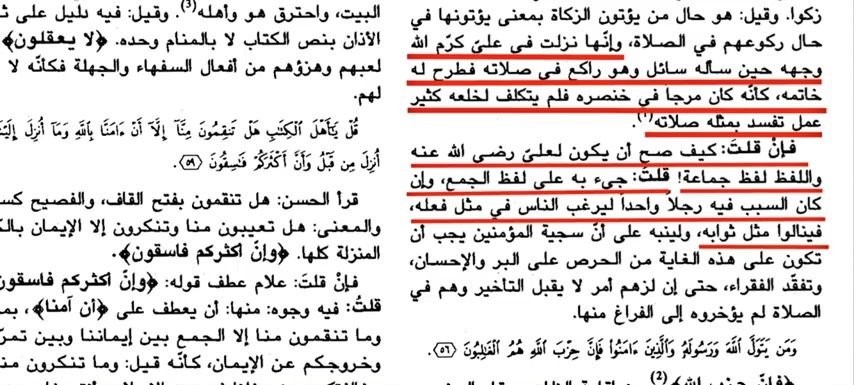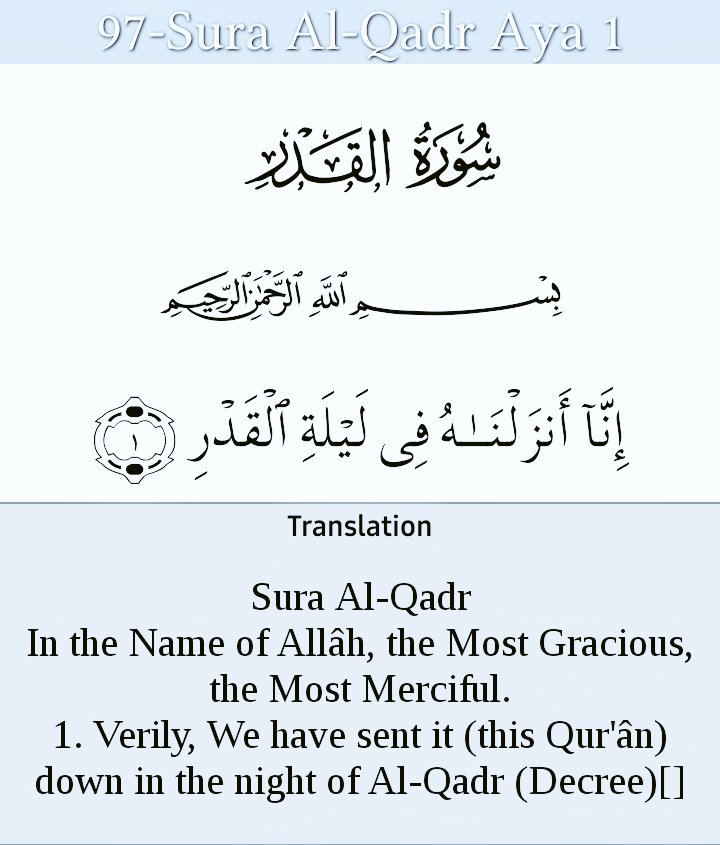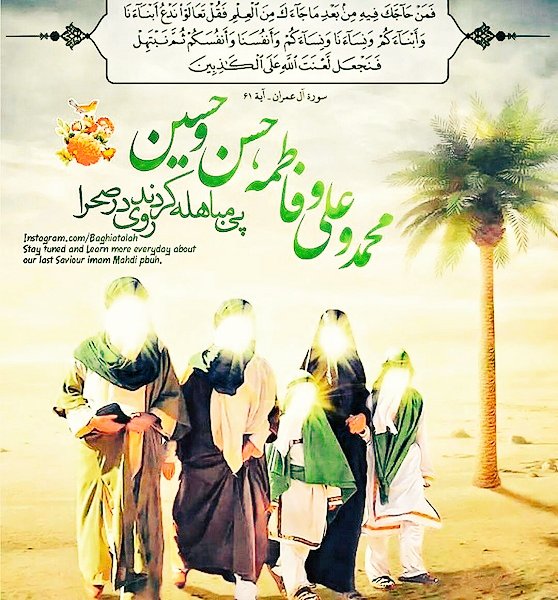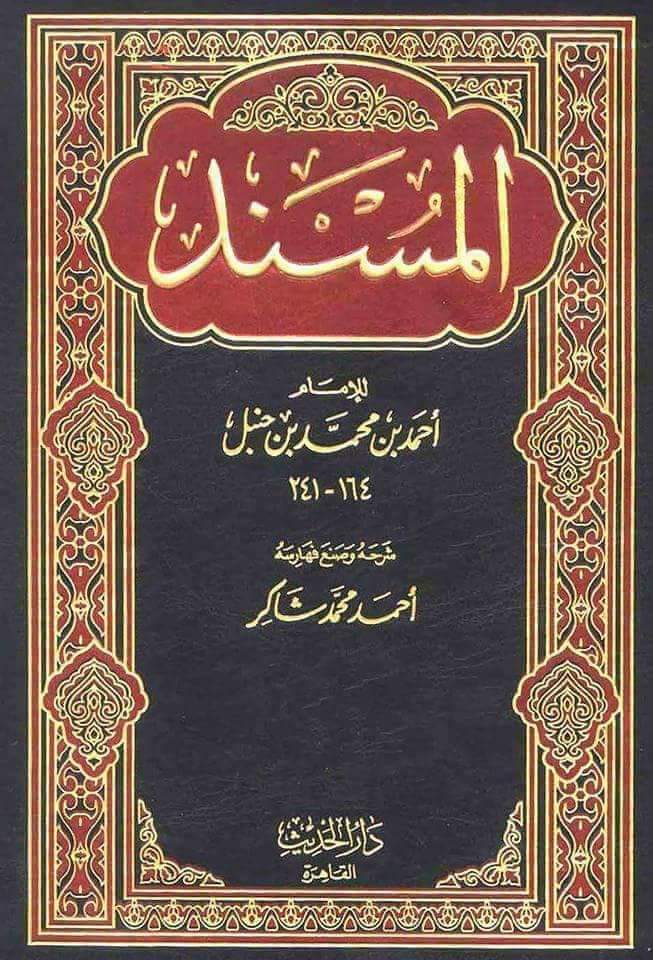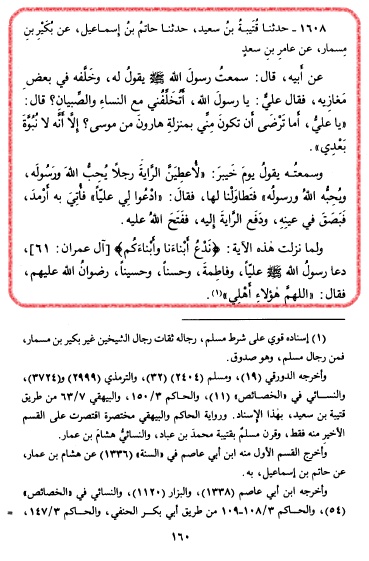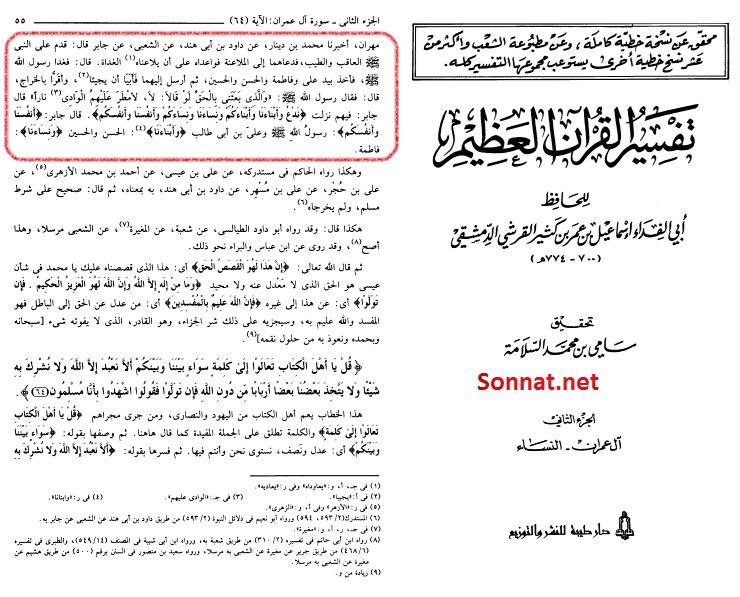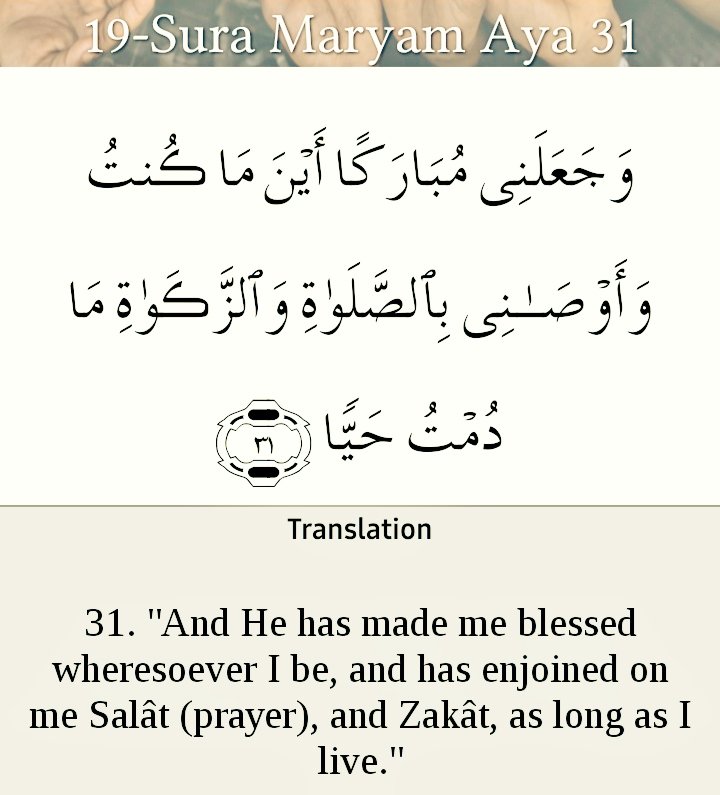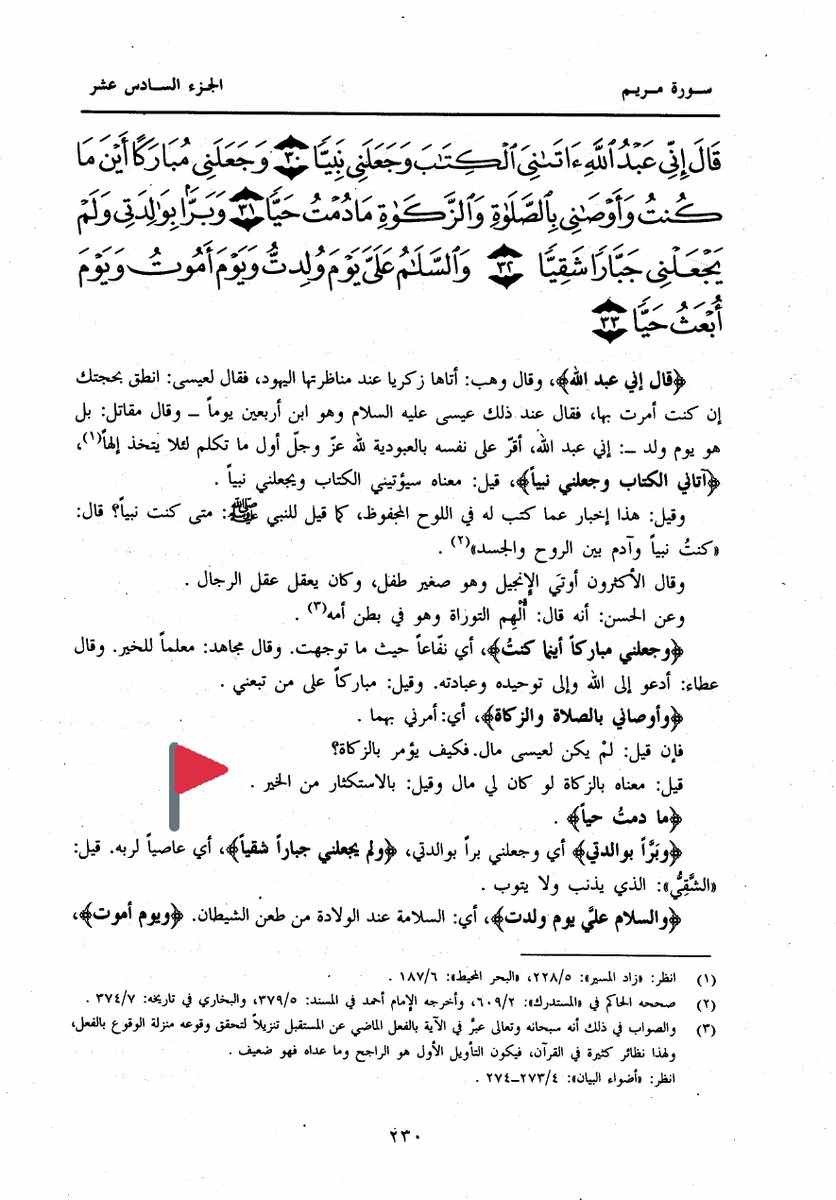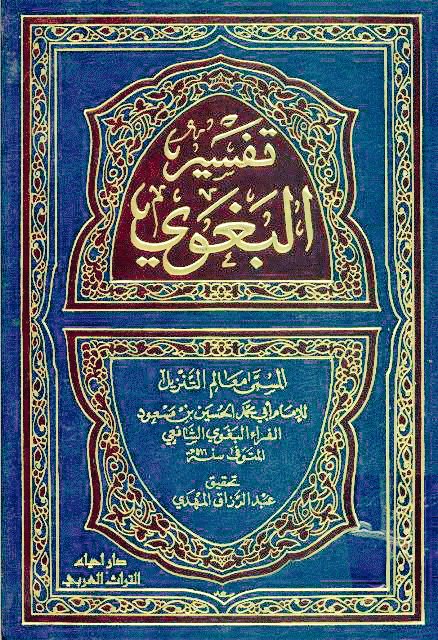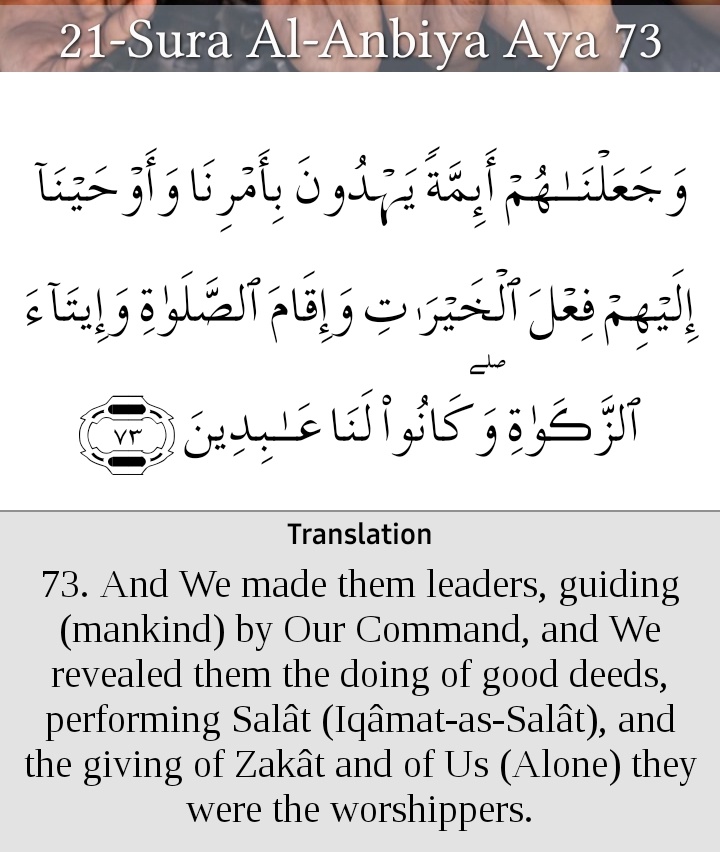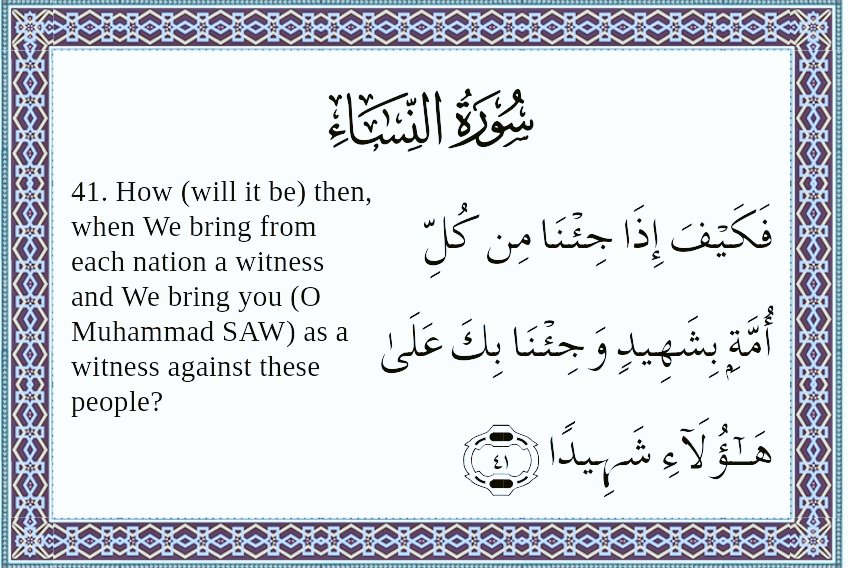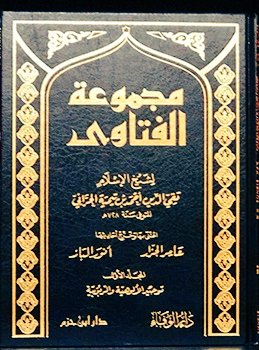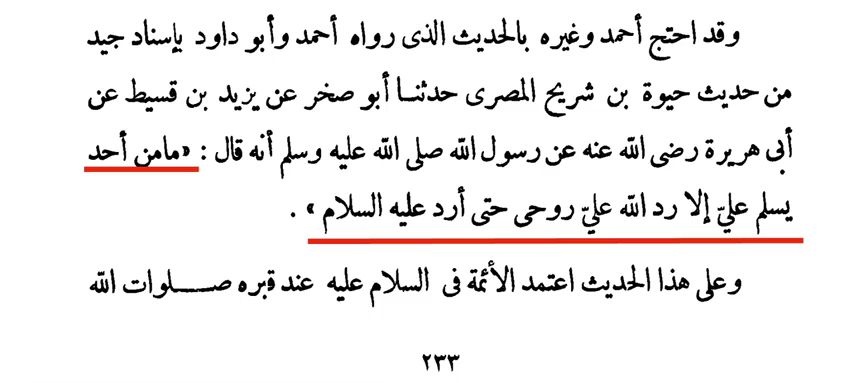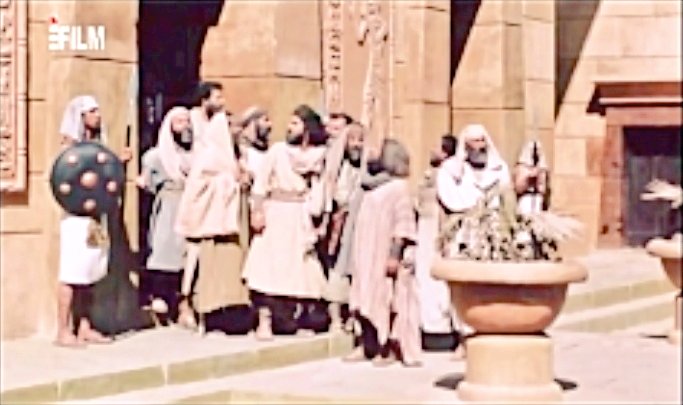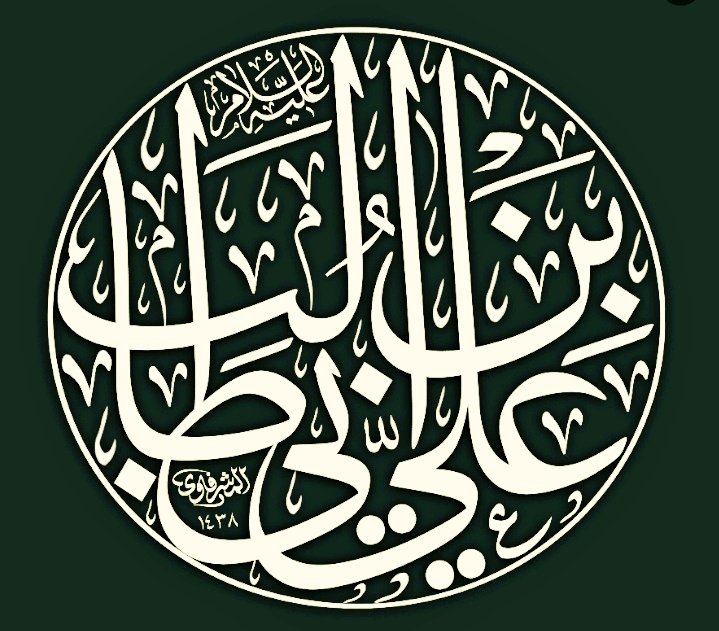Proof of Aya Welayat (Al-Ma'eda:55) that mentions Imam Ali (AS) from Sunni Sources.
لبیک یا علی!
#Ali
لبیک یا علی!
#Ali
سورة المائدة، آیة ٥٥
إِنَّمَا وَلِيُّكُمُ اللَّهُ وَرَسُولُهُ وَالَّذِينَ آمَنُوا الَّذِينَ يُقِيمُونَ الصَّلَاةَ وَيُؤْتُونَ الزَّكَاةَ وَهُمْ رَاكِعُونَ
إِنَّمَا وَلِيُّكُمُ اللَّهُ وَرَسُولُهُ وَالَّذِينَ آمَنُوا الَّذِينَ يُقِيمُونَ الصَّلَاةَ وَيُؤْتُونَ الزَّكَاةَ وَهُمْ رَاكِعُونَ
"Verily, your Walî is none other than Allah, His Messenger, and the believers, -those who perform As-Salât, and give Zakât, and they are Rakiun [bowing]."
We referred to more than 60 sources from Sunni scholars.
They said that this verse was revealed about Amir al-Mu'minin Ali.
Whoever wants more sources, refer to the book of Al-Ghadir. Allameh Amini has mentioned about 70 Sunni sources.
They said that this verse was revealed about Amir al-Mu'minin Ali.
Whoever wants more sources, refer to the book of Al-Ghadir. Allameh Amini has mentioned about 70 Sunni sources.
Allama Alusi Baghdadi, one of the great Sunni scholars, states in his book that according to most of the Akhbaris, the verse was revealed about Amir al-Mu'minin Ali.
Alusi Baghdadi / Roh ol Ma'ani
Alusi Baghdadi / Roh ol Ma'ani
He also states in the sixth volume: The fact that the verse was revealed in the honor of Ali ibn Abi Talib is proven by most narrators.
Taftazani says:
"All the great scholars agree that this verse was revealed about Ali ibn Abi Talib when he gave his ring to the poor while he was bowing in Salah."
Allameh Taftazani / Sharh ol Maqasid / Volume 5 / Page 270
"All the great scholars agree that this verse was revealed about Ali ibn Abi Talib when he gave his ring to the poor while he was bowing in Salah."
Allameh Taftazani / Sharh ol Maqasid / Volume 5 / Page 270
Eji says:
"All the great scholars agree that this verse was revealed about Ali while he was bowing in prayer, then a poor man asked him, then Ali gave him his ring. Then the verse was revealed."
EJI / Sharh ol Mawaqif
"All the great scholars agree that this verse was revealed about Ali while he was bowing in prayer, then a poor man asked him, then Ali gave him his ring. Then the verse was revealed."
EJI / Sharh ol Mawaqif
It is also narrated from the Companions that this verse was revealed about Ali.
There is no doubt and it cannot be said that this verse was not revealed about Ali a.s.
The companions narrated to us; Abu Dharr, Ammar, Miqdad, Hassan ibn Thabit, Anas ibn Malik, Amr al-As, etc.
There is no doubt and it cannot be said that this verse was not revealed about Ali a.s.
The companions narrated to us; Abu Dharr, Ammar, Miqdad, Hassan ibn Thabit, Anas ibn Malik, Amr al-As, etc.
Haskani quotes Abudhar al-Ghaffari as saying: "Ali, the leader of the virtuous, is the destroyer of the disbelievers. Whoever helps him is victorious. It is a disgrace for anyone who does not help him." Then he says that I prayed the noon prayer with the Messenger of Allah...
When the prayer was over, a poor man entered the mosque and asked for help. But no one helped him. Ali ibn Abi Talib prays; Then the beggar raised his hand to the sky and said, "O God, bear witness that I asked for help in the mosque of your Prophet, but no one gave me anything."
Ali, who was praying, took off his ring in Ruku and the poor man took it. And this happened in front the eyes of the Prophet.Then, when the Prophet (SAA) finished his Salah, he raised his head to the sky and prayed:“O Allah, my brother Musa asked you, saying:
[Taha; 25-31]
[Taha; 25-31]
(Musa) said: "O my Lord! Expand me my breast; (25)
"Ease my task for me; (26)
"And remove the impediment from my speech, (27)
"So they may understand what I say: (28)
"And give me a Minister from my family, (29)
"Aaron, my brother; (30)
"Add to my strength through him, (31)
"Ease my task for me; (26)
"And remove the impediment from my speech, (27)
"So they may understand what I say: (28)
"And give me a Minister from my family, (29)
"Aaron, my brother; (30)
"Add to my strength through him, (31)
That you answered his prayer. And you said to him:
"We will certainly strengthen thy arm through thy brother, and invest you both with authority." (35)
Now I ask you, O Allah:" I'm Muhammad, your Messenger and your Safi (Chosen). Expand me my breast. Ease my task for me
"We will certainly strengthen thy arm through thy brother, and invest you both with authority." (35)
Now I ask you, O Allah:" I'm Muhammad, your Messenger and your Safi (Chosen). Expand me my breast. Ease my task for me
And give me a Minister from my family; Ali, my brother."
Then Abudhar added: Prophet's dua was not finished when Gabriel came down and said the Prophet:"Read." He said:"What should I read?"
Said:
انما ولیکم الله و رسوله و الذین آمنوا الذین یقیمون الصلوة و آتوا الزکاة و هم راکعون
Then Abudhar added: Prophet's dua was not finished when Gabriel came down and said the Prophet:"Read." He said:"What should I read?"
Said:
انما ولیکم الله و رسوله و الذین آمنوا الذین یقیمون الصلوة و آتوا الزکاة و هم راکعون
I wanted to get to the point that the Sunni Scholars unanimously said that Aya Welayat was about Amir al-Mu'minin Ali.
What did Ibn Taymiyyah, the Imam of Wahhabism, say?
See resentment and enmity with Ahl al-Bayt.
What did Ibn Taymiyyah, the Imam of Wahhabism, say?
See resentment and enmity with Ahl al-Bayt.
Do you know what he said about this verse which is the consensus of the Scholars?!
Ibn Taymiyyah in his book Minhaj al-Sunnah / Volume II / Page 30
He said that some liars made this fake narrations.
Ibn Taymiyyah in his book Minhaj al-Sunnah / Volume II / Page 30
He said that some liars made this fake narrations.
This means that it is all a lie that Imam Ali (AS) gave his ring as a charity to the poor and that this verse was revealed about Amir al-Mu'minin Ali (AS).
Then he says: "This is a lie according to the consensus of the scholars."
No one knows who this scholars are! Tell us the names of one or two people.
Certainly these scholars are Ibn Taymiyyah himself and his friends.
No one knows who this scholars are! Tell us the names of one or two people.
Certainly these scholars are Ibn Taymiyyah himself and his friends.
See how he denies this clear fact which has been proved by the scholars of the Muslims; Ibn Taymiyyah denies the fact that is the consensus of Muslims.
Why??Do you know why he denies?
Because the point is that this verse indicates the caliphate and Imamate of Ali ibn Abi Talib
Why??Do you know why he denies?
Because the point is that this verse indicates the caliphate and Imamate of Ali ibn Abi Talib
Now what is the reason for this denial of Ibn Taymiyyah?
First of all: this verse was revealed in the form of a plural and Ali is one person
Second: Ali ibn Abi Talib does not have zakat to pay.
And another set of doubts.
Inshaallah, We will answer it briefly.
First of all: this verse was revealed in the form of a plural and Ali is one person
Second: Ali ibn Abi Talib does not have zakat to pay.
And another set of doubts.
Inshaallah, We will answer it briefly.
ⓛOne of his suspicions is that in this verse, Walî means love and affection. What is the reason for this?
His reason is this verse:
"Believers are friends and lovers of each other." (Al-Tobe:71)
His reason is this verse:
"Believers are friends and lovers of each other." (Al-Tobe:71)
In another verse: "So that he who is at enmity with you may become your friend and relative." (Al-Fosselat: 34)
فَإِذَا الَّذِي بَيْنَكَ وَبَيْنَهُ عَدَاوَةٌ كَأَنَّهُ وَلِيٌّ حَمِيمٌ
The enemy becomes a friend (Wali) and a lover.
فَإِذَا الَّذِي بَيْنَكَ وَبَيْنَهُ عَدَاوَةٌ كَأَنَّهُ وَلِيٌّ حَمِيمٌ
The enemy becomes a friend (Wali) and a lover.
۞Refuting:
✓Question: Are there other verses in the Qur'an that Walî mean guardianship in them?
Answer: Yes. Many verses told us this aspect of meaning.
One of the verses is that he says: The Prophet is more deserving of the believers than they are. (Al-Ahzab:6)
(Al-Imran:68)
✓Question: Are there other verses in the Qur'an that Walî mean guardianship in them?
Answer: Yes. Many verses told us this aspect of meaning.
One of the verses is that he says: The Prophet is more deserving of the believers than they are. (Al-Ahzab:6)
(Al-Imran:68)
النَّبِيُّ أَوْلَىٰ بِالْمُؤْمِنِينَ مِنْ أَنفُسِهِمْ
What does 'Oola(more Walî)' mean here? That is: obedience to them is obligatory and their will is paramount.
So here it means guardian in matters of religion and the world.
What does 'Oola(more Walî)' mean here? That is: obedience to them is obligatory and their will is paramount.
So here it means guardian in matters of religion and the world.
✓Verse 2: "God is the Wali (Guardian) of the believers, who brought them out of darkness to the light" (Al-Baqarah: 257)
Does this mean that God loves believers? Does Walî mean friend here?
Or it means that God is the guardian in the affairs of the servants.
Does this mean that God loves believers? Does Walî mean friend here?
Or it means that God is the guardian in the affairs of the servants.
✓Verse 3: And whoever is killed unjustly, We have given dominion over his guardian (Al-Isra': 33)
Here, however, what does it mean?
That is, the guardian of the tail; That is, someone who is more deserving than the person.
Here, however, what does it mean?
That is, the guardian of the tail; That is, someone who is more deserving than the person.
✓Next verse: But let him spell with justice. (Al-Baqarah: 282)
Here, however, it means guardian.
Many verses refer to the fact that Vali means guardian.
Here, however, it means guardian.
Many verses refer to the fact that Vali means guardian.
✓The companions also understood this meaning from this verse.
See Sahih Bukhari, Volumes 4, 5, and 8, and Sahih Muslim, Volume 5.
See Sahih Bukhari, Volumes 4, 5, and 8, and Sahih Muslim, Volume 5.
Umar ibn al-Khattab says: When the Prophet PBUH died, Abu Bakr said:
I am the Wali (guardian and successor) of the Prophet and when Abu Bakr died, I (Umar) said that I am the Wali (guardian and successor) of the Messenger of God, peace be upon him and Abu Bakr.
I am the Wali (guardian and successor) of the Prophet and when Abu Bakr died, I (Umar) said that I am the Wali (guardian and successor) of the Messenger of God, peace be upon him and Abu Bakr.
What did they interpret Wali here??
They interpreted the meaning of caliphate. When Umar and Abu Bakr say, "I am the Wali (guardian) of the Messenger of God," it means caliphate.
They interpreted the meaning of caliphate. When Umar and Abu Bakr say, "I am the Wali (guardian) of the Messenger of God," it means caliphate.
But if we say that Amir al Mu'minin Ali is Wali of the Prophet, does this mean friend, love and affection??
I swear to God that I do not understand this logic !! What is the difference between the two?
Is this not a clear enmity with Amir al-Mu'minin and the Ahl al-Bayt?
Is this not a clear enmity with Amir al-Mu'minin and the Ahl al-Bayt?
✓According to the verse
"المومنون بعضهم اولیا بعض"
,love is among all believers. Love includes all Muslims.
However, in the verse of Welayat (Al-Nisa:59), Allah has limited the meaning of Walî to three groups;
God Almighty, the Messenger of God, and those who believed and ...
"المومنون بعضهم اولیا بعض"
,love is among all believers. Love includes all Muslims.
However, in the verse of Welayat (Al-Nisa:59), Allah has limited the meaning of Walî to three groups;
God Almighty, the Messenger of God, and those who believed and ...
We can not say that love is limited to only three things.
Therefore, the word Walî in this verse means guardianship, caliphate and Imamate, which God has made special for Himself and the Prophet and Imam Ali and the family of Muhammad SAA.
Therefore, the word Walî in this verse means guardianship, caliphate and Imamate, which God has made special for Himself and the Prophet and Imam Ali and the family of Muhammad SAA.
Allama Saadi, one of the Sunni scholars, has said in his commentary; The word 'انّما', which is to be exclusive, limits the Welayat (Guardianship) to these three groups and obliges the intolerance of the Welayat other than them.
Therefore, the issue is the issue of Imamate and Caliphate, which proves that Imam Ali is the Caliph and the Wali (Guardian, Successor, Caliphate, Imam and Leader) of the Apostle of Allah.
ⓛThe next doubt that is raised about the verse of Wilayah and mentioned by Ibn Taymiyyah, is this:
They say the verse is in plural form; Those who believe and ... but Ali is one person.
They say the verse is in plural form; Those who believe and ... but Ali is one person.
Answer from Sunni scholars:
Zamakhshari / Kashaf / Volume One
✓Zamakhshari says: "This verse was revealed about Imam Ali (as) when he gave his ring as charity...
Zamakhshari / Kashaf / Volume One
✓Zamakhshari says: "This verse was revealed about Imam Ali (as) when he gave his ring as charity...
...If you ask that Ali (as) was one person and there is a plural word in the verse, I will answer: Allah sent down and revealed this Aya in plural form to encourage the rest of the believers to do so in order to receive a great reward."
(The verse was revealed in a plural form, so that the believers would also care about the poor, as Imam Ali (as) cared.)
✓Sometimes, he comes to respect; Allah Almighty says in the Qur'an:
"انا انزلناه فی لیلة القدر"
This verse is in plural form while Allah is one person. This is for respect and appreciation. ✓Sometimes, there are verses in the Qur'an that are plural but mean singular.
"انا انزلناه فی لیلة القدر"
This verse is in plural form while Allah is one person. This is for respect and appreciation. ✓Sometimes, there are verses in the Qur'an that are plural but mean singular.
يَقُولُونَ نَخْشَي أَنْ تُصِيبَنَا دَائِرَةٌ (مائده:52)
Those in whose hearts is a disease thou seest how eagerly they run about amongst them, saying: "We do fear lest a change of fortune bring us disaster."
This verse is in the plural while it is about Abdullah bin Obai.
Those in whose hearts is a disease thou seest how eagerly they run about amongst them, saying: "We do fear lest a change of fortune bring us disaster."
This verse is in the plural while it is about Abdullah bin Obai.
✓Another verse
"Should anyone argue with you concerning him, after the knowledge that has come to you, say, ‘Come! Let us call our sons and your sons, our women and your women, our souls and your souls, then let us pray earnestly, and call down Allah’s curse upon the liars.’"
"Should anyone argue with you concerning him, after the knowledge that has come to you, say, ‘Come! Let us call our sons and your sons, our women and your women, our souls and your souls, then let us pray earnestly, and call down Allah’s curse upon the liars.’"
Al-Imran:61
و نسائنا و نسائکم
And our women and your women.
Who is meant by 'women' (nisa)? Hazrat Zahra, peace be upon her. By consensus of all Muslims. Hazrat Zahra is one person, but the verse is plural.
و نسائنا و نسائکم
And our women and your women.
Who is meant by 'women' (nisa)? Hazrat Zahra, peace be upon her. By consensus of all Muslims. Hazrat Zahra is one person, but the verse is plural.
و انفسنا و انفسکم
And our souls and your souls.
What is meant by 'souls' ? Amir al-Mu'minin Ali, peace be upon him. But the verse is in plural form while Ali (as) is one person.
Sometimes in the Qur'an, plural form mentions one person.
And our souls and your souls.
What is meant by 'souls' ? Amir al-Mu'minin Ali, peace be upon him. But the verse is in plural form while Ali (as) is one person.
Sometimes in the Qur'an, plural form mentions one person.
ⓛNext suspicion: They said how Imam Ali (as) gives zakat in bowing? Did Imam have Zakat?
✓Answer: Note that the meaning of zakat in the Qur'an does not only mean zakat on crops such as wheat, barley, etc. It means financial charity (Sadaqa and Infaq)
Jesus said:
✓Answer: Note that the meaning of zakat in the Qur'an does not only mean zakat on crops such as wheat, barley, etc. It means financial charity (Sadaqa and Infaq)
Jesus said:
وَ جَعَلَنِي مُبَارََكَاً أَيْنَمَا كُنْتُ وَ أَوْصَانِي بِالصَّلاَةِ وَالزَّكَاةِ مَا دُمْتُ حَيَّاً (مريم:31)
"And He hath made me blessed wheresoever I be, and hath enjoined on me Prayer and Charity as long as I live." (31)
"And He hath made me blessed wheresoever I be, and hath enjoined on me Prayer and Charity as long as I live." (31)
That is, God commanded him to give zakat on wheat and barley? No. It means giving alms financially.
Baqavi (Sunni scholar) admit this idea in his Tafsir.
Baqavi (Sunni scholar) admit this idea in his Tafsir.
"And We made them leaders, guiding (men) by Our Command, and We sent them inspiration to do good deeds, to establish regular prayers, and to give regular Zakat; and they constantly served Us only."(Al-Anbia:73)
Zakat means Sadaqa and Infaq. The same thing happened in the verse of Welayat.
ⓛLast thing: [You say that Imam Ali (as) does not pay attention to anything during prayers and only pays attention to God. So how did he hear the poor voice? So it turns out that the Imam is not careful in his prayer.]
✓Answer:
For example, if I pray and see my child go to the fire, I raise my voice for others to hear. I came out of obedience (Khosho') here, but my prayer is not invalid. This case is different from the case of Ali (as)...
For example, if I pray and see my child go to the fire, I raise my voice for others to hear. I came out of obedience (Khosho') here, but my prayer is not invalid. This case is different from the case of Ali (as)...
Why? Because he was in one worship and engaged in another worship which is giving alms. That is, he did not deviate from the obedience (Khosho') of the prayer even for a moment during the prayer.
✓Another answer: We believe that the authority of God on earth, the Messenger of God or the Infallible Imam, see the deeds of the Ummah.
فَكَيْفَ إِذَا جِئْنَا مِنْ كُلِّ أُمَّةٍ بِشَهِيدٍ وَ جِئْنَا بِكَ عَلَي هَؤُلاَءِ شَهِيدَاً (نساء:41)
فَكَيْفَ إِذَا جِئْنَا مِنْ كُلِّ أُمَّةٍ بِشَهِيدٍ وَ جِئْنَا بِكَ عَلَي هَؤُلاَءِ شَهِيدَاً (نساء:41)
وَ قُلِ اعْمَلُوا فَسَيَرَي اللهُ عَمَلَكُمْ وَ رَسُولُهُ وَالْمُؤْمِنُونَ (توبه:105)
《And say: "Work (righteousness): Soon will Allah observe your work, and His Messenger, and the Believers.》
《And say: "Work (righteousness): Soon will Allah observe your work, and His Messenger, and the Believers.》
✓Question: The Prophet SAA sees and hears all our deeds. How is it that the Prophet sees and hears all the believers?
Ibn Taymiyyah quotes from Abi Hurayrah: "The Holy Prophet (SAA) said that no one greets me (an Ummah of one and a half billion people), unless God Almighty returns my soul to my body to respond to his greeting."
We ask them. How does the Holy Prophet (SAA) hear our greetings?
We ask them. How does the Holy Prophet (SAA) hear our greetings?
We all greet the Prophet in prayer and send greetings to him. How does the Prophet answer all of us? Wahhabis say that this belongs to the Messenger of God. That is, the Holy Prophet has a special hearing that is different from ours.
The Walî of the Prophet, who is introduced in the verse of Mubahila, the soul (Nafs) of the Prophet, also has a special hearing. He has a special vision... The Prophet said: "O Ali. You hear what I hear and you see what I see. Except that you are not a prophet."
So Ali also has a special hearing that is different from ours. So he heard the voice of the poor with his special hearing, while all his senses are in the presence of God Almighty. What is wrong with this?
They have not understood the status of Imamate.
They have not understood the status of Imamate.
✓Hazrat Ya'qub said: "I smell the scent of Yusuf."
وَ لَمّا فَصلَتِ العِيرُ قَالَ أَبوهُمْ إِنِّي لَأجِدُ ريحَ يوسُفَ لَولا أَنْ تُفَنّدُون(يوسف:94)
When the caravan left (Egypt), their father said: "I do indeed scent the presence of Joseph: Nay, think me not a dotard."
وَ لَمّا فَصلَتِ العِيرُ قَالَ أَبوهُمْ إِنِّي لَأجِدُ ريحَ يوسُفَ لَولا أَنْ تُفَنّدُون(يوسف:94)
When the caravan left (Egypt), their father said: "I do indeed scent the presence of Joseph: Nay, think me not a dotard."
This is a smell that not everyone can smell. Joseph's brothers were with Yosuf in the palace but did not smell the prophecy. Yes, they did not feel. This is the smell of prophecy that not everyone feels. Only Hazrat Ya'qub smelled it.
Imam Ali says in his sermon: "I smell the scent of prophecy." That is, Hazrat Ali, like Hazrat Ya'qub, has heavenly and divine senses. Rather, he is the soul (Nafs) of Muhammad Mustafa, peace and blessings of God be upon him and his Ahl al-Bayt.

 Read on Twitter
Read on Twitter
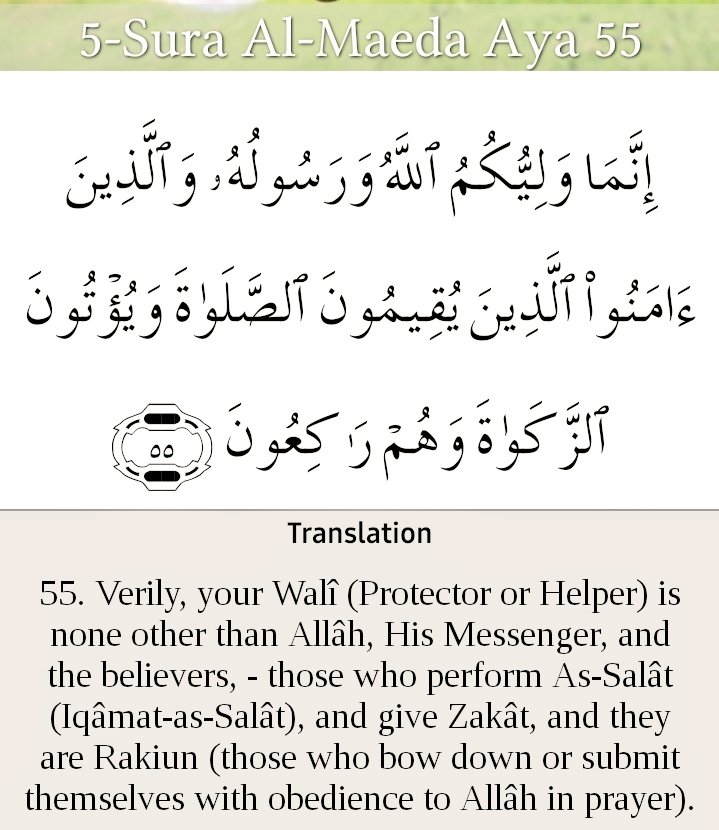
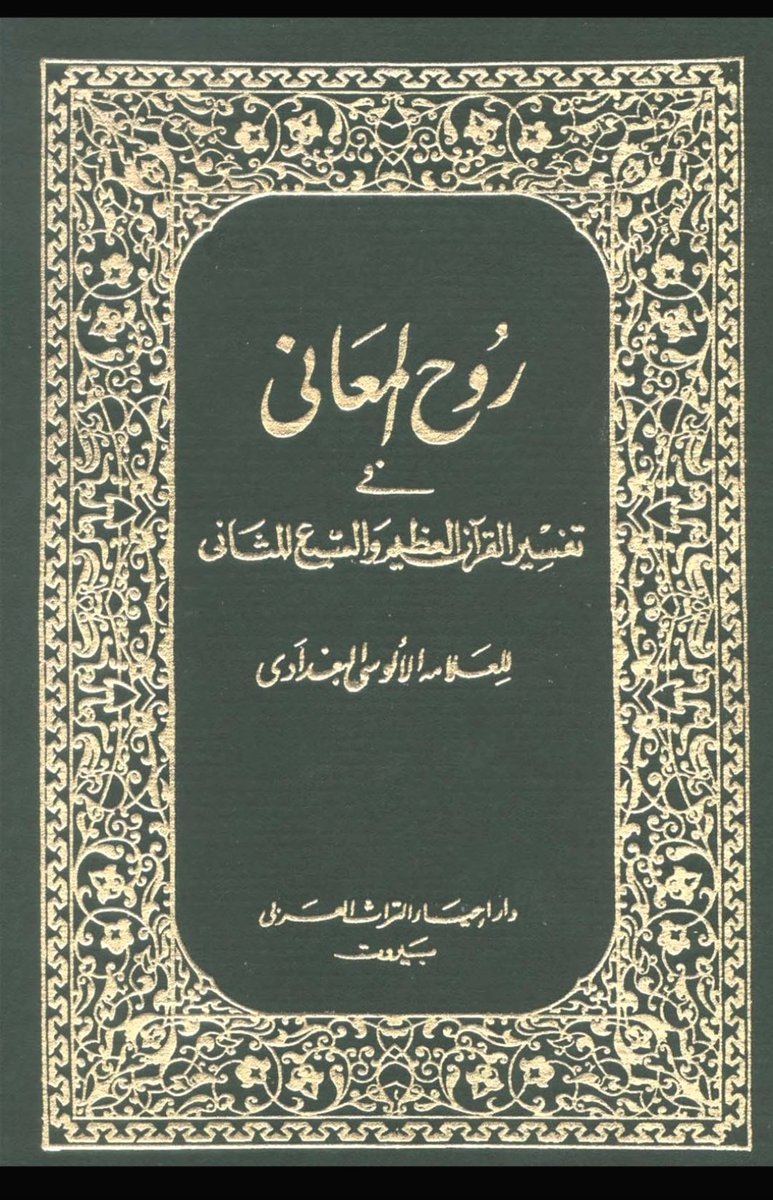
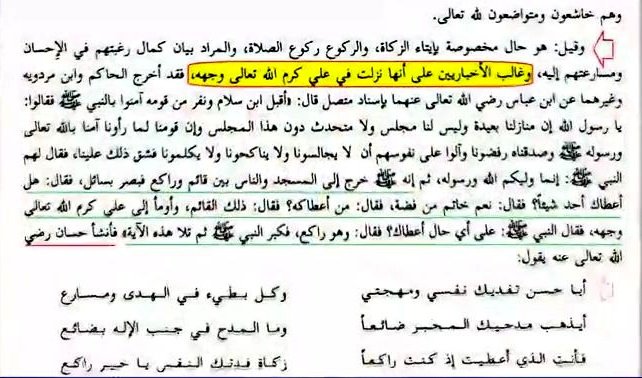
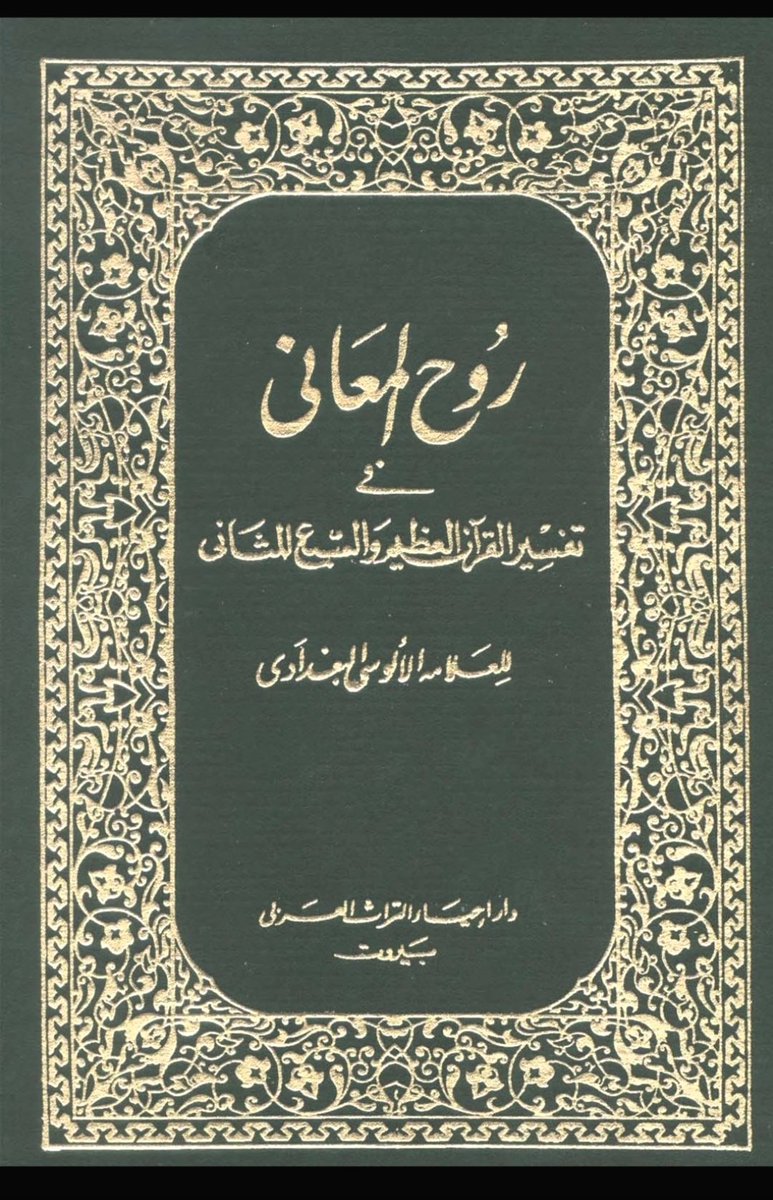
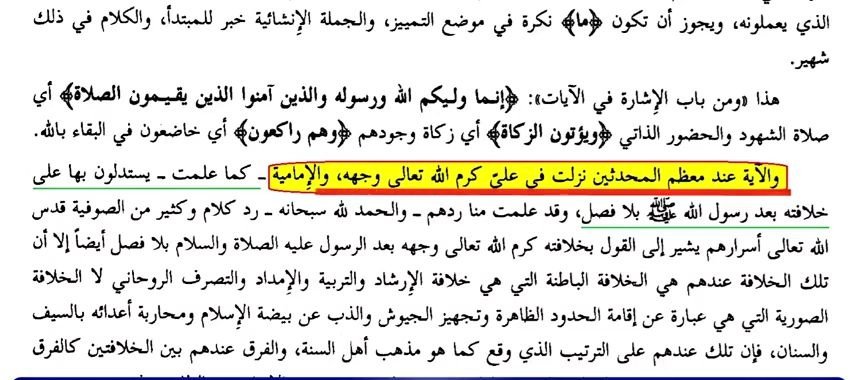
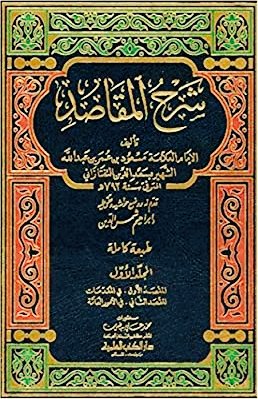
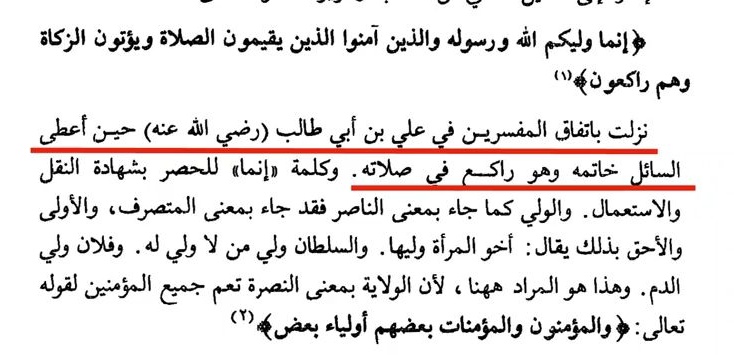
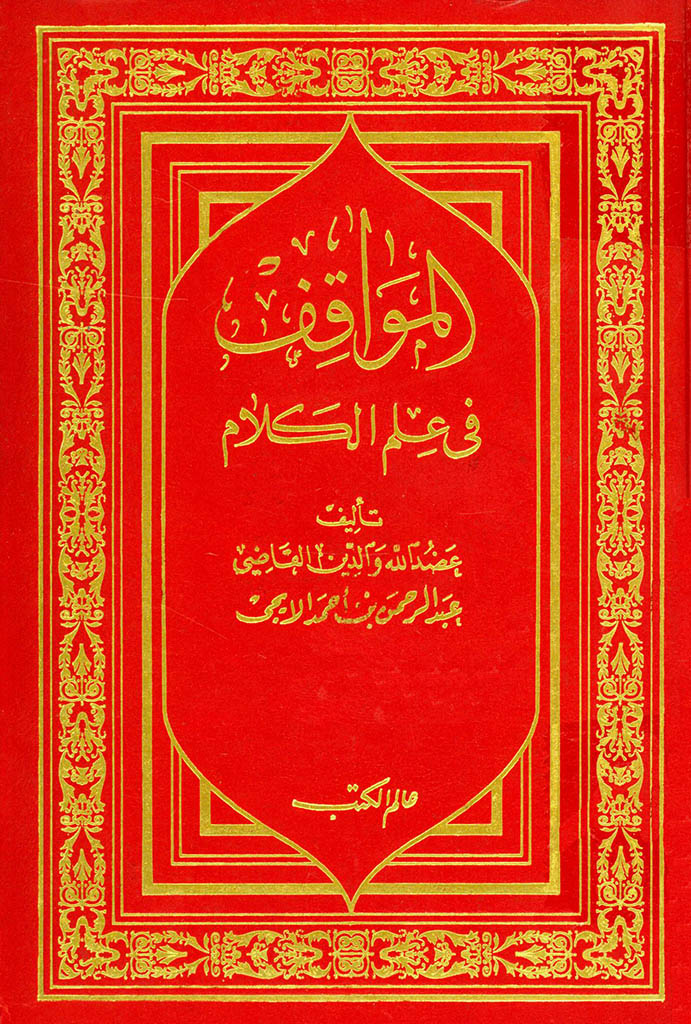
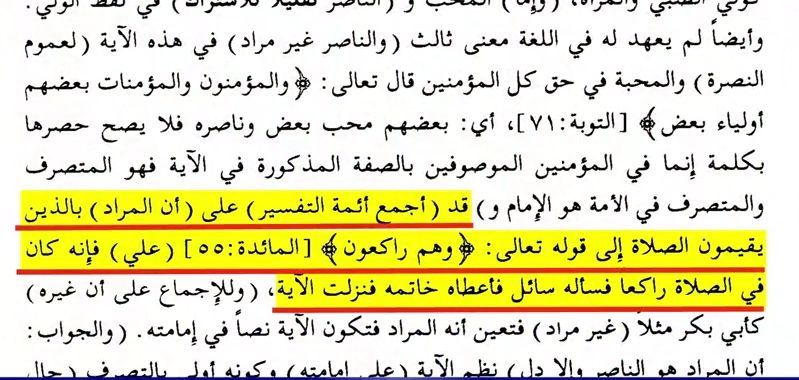
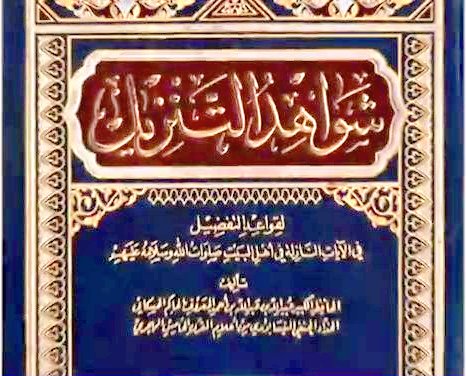
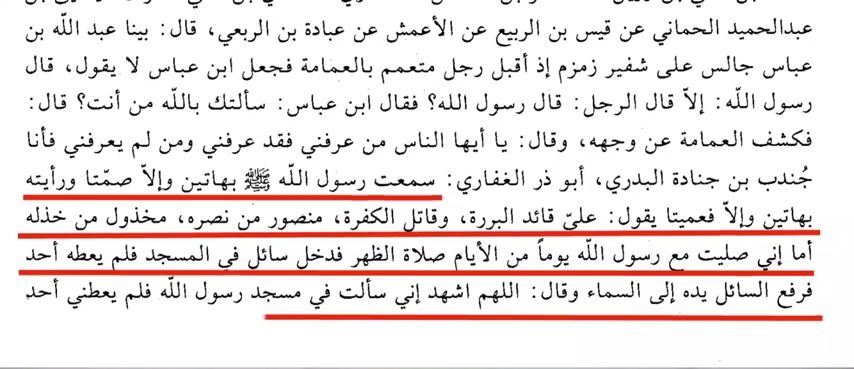
![Ali, who was praying, took off his ring in Ruku and the poor man took it. And this happened in front the eyes of the Prophet.Then, when the Prophet (SAA) finished his Salah, he raised his head to the sky and prayed:“O Allah, my brother Musa asked you, saying:[Taha; 25-31] Ali, who was praying, took off his ring in Ruku and the poor man took it. And this happened in front the eyes of the Prophet.Then, when the Prophet (SAA) finished his Salah, he raised his head to the sky and prayed:“O Allah, my brother Musa asked you, saying:[Taha; 25-31]](https://pbs.twimg.com/media/EeJ0impXsAAVuf_.jpg)
